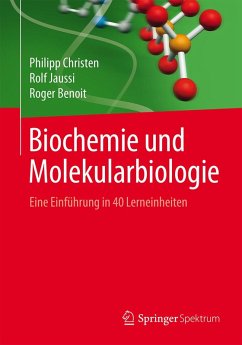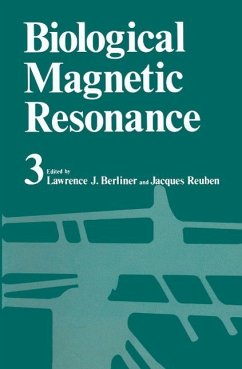
The Physical Basis of Biochemistry (eBook, PDF)
Solutions Manual to the Second Edition
Versandkostenfrei!
Sofort per Download lieferbar
40,95 €
inkl. MwSt.
Weitere Ausgaben:

PAYBACK Punkte
20 °P sammeln!
The Physical Basis of Biochemistry: Solutions Manual to the Second Edition offers solutions to the problem sets from the second edition of The Physical Basis of Biochemistry. The Physical Basis of Biochemistry, Second Edition, emphasizes the interdisciplinary nature of biophysical chemistry by incorporating the quantitative perspective of the physical sciences without sacrificing the complexity and diversity of the biological systems, applies physical and chemical principles to the understanding of the biology of cells and explores the explosive developments in the area of genomics, and in tur...
The Physical Basis of Biochemistry: Solutions Manual to the Second Edition offers solutions to the problem sets from the second edition of The Physical Basis of Biochemistry. The Physical Basis of Biochemistry, Second Edition, emphasizes the interdisciplinary nature of biophysical chemistry by incorporating the quantitative perspective of the physical sciences without sacrificing the complexity and diversity of the biological systems, applies physical and chemical principles to the understanding of the biology of cells and explores the explosive developments in the area of genomics, and in turn, proteomics, bioinformatics, and computational and visualization technologies that have occurred in the past seven years. The book features problem sets and examples, clear illustrations, and extensive appendixes that provide additional information on related topics in mathematics, physics and chemistry. The answers to these problem sets can be found in The Physical Basis of Biochemistry: Solutions Manual to the Second Edition.
Dieser Download kann aus rechtlichen Gründen nur mit Rechnungsadresse in A, B, BG, CY, CZ, D, DK, EW, E, FIN, F, GR, HR, H, IRL, I, LT, L, LR, M, NL, PL, P, R, S, SLO, SK ausgeliefert werden.












